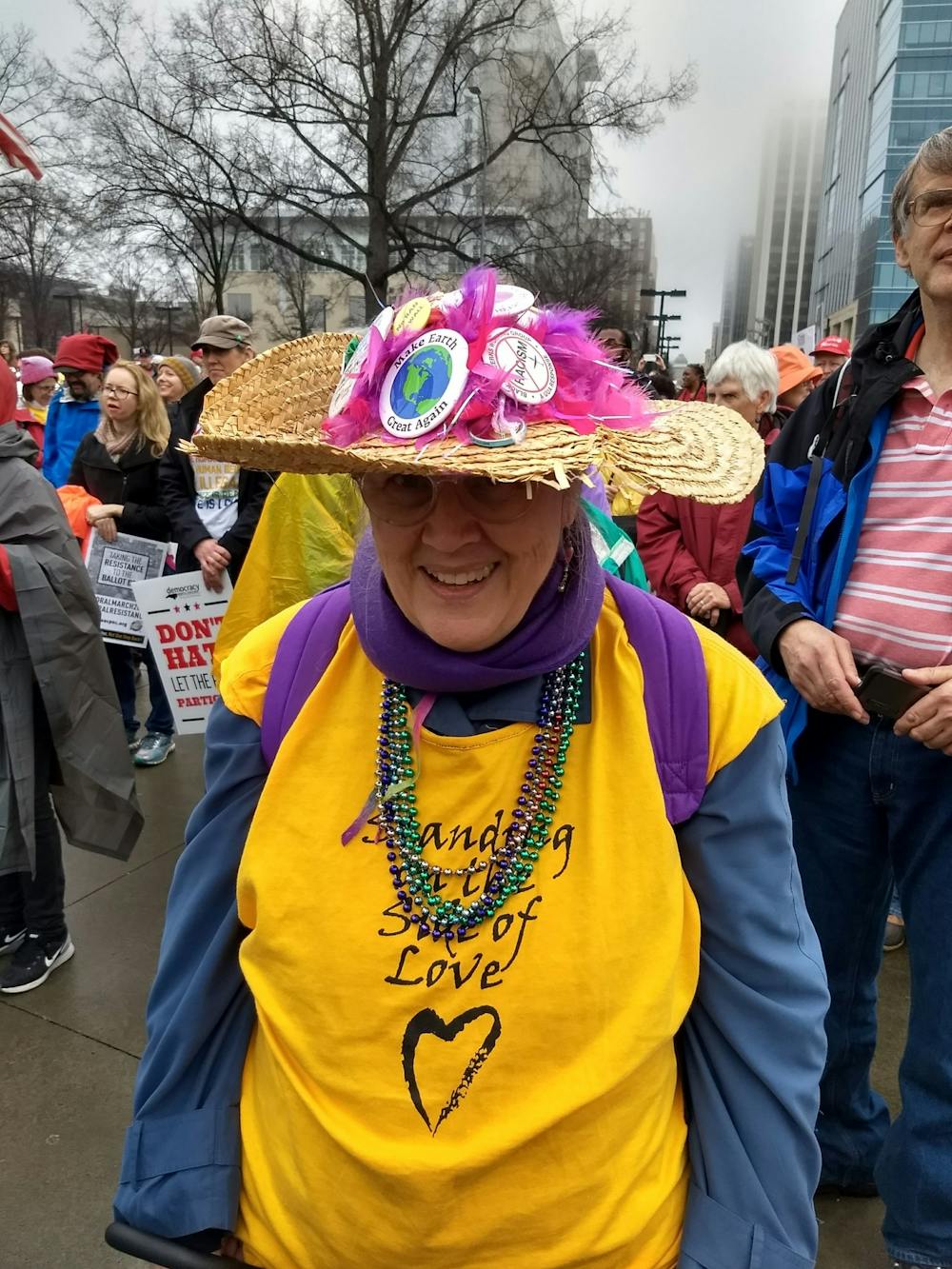If you've ever been to a women's march in the Triangle, you've probably seen a group of elderly women donning pink with their fists held high.
The Raging Grannies is a self-proclaimed international disorganization with a Triangle chapter of more than 40 women over the age of 65 who gather and perform songs to bring a message to the public that may otherwise go unheard.
“That message is that as grandmothers, we’ll do everything we can to ensure a safe and sustainable future for our grandchildren,” said Vicki Ryder, a member of the group. "Wherever we see that that future is threatened, we will raise our voices.”
The Grannies have protested against a wide range of causes both domestic and international, including Duke Energy dumping coal ash into local ground and water, United States military intervention abroad and inadequate public education.
“We do it in a unique way, mindfully, purposefully," Ryder said. "We do it by writing our own lyrics to old familiar melodies and singing our messages wherever we think they need to be heard. Sometimes we’re invited, sometimes we’re not, and that doesn't stop us."
Ruth Zalph, an 89-year-old member of the Triangle chapter, helped establish the local division more than 20 years ago during her time as a resident in a co-housing community in Carrboro.
Zalph, along with six other women, heard about the then-Canada-based group of women who wrote songs about issues they were facing and was inspired by the idea.
“When they talked about what was going on in Canada, we had the same concerns about what was going on in the U.S. and the issues of nuclear weapons and nuclear ships and war,” Zalph said. “As a Quaker, I believed that war is not the answer. You will never come to peace by making war.”
The Grannies attend their gigs dressed up in fun hats and sometimes eccentric outfits, but despite their lighthearted outward appearance, they said they believe in their potential to provoke change, and take their activism seriously.



